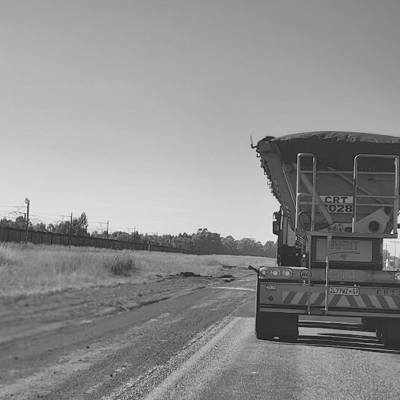CO2 Evolve Project
Reducing carbon emissions is good for business. Building communities and changing the world when you do it builds a better future for everyone.









Anything you can do with wood or petrol chemicals, you can do with hemp but in a green and sustainable way.
INTRO
DISCOVERY - South Africa
On a trip to Africa in the early part of 2021, we were sent on a 12-hour road journey to meet some farmers outside of Johannesburg. We must have passed at least 1000 coal trucks and thousands of train cars carrying nothing but coal. Many villages along the way were covered in a brown fog and subsequently learned that power is lost every day for up to 8-12 hours in a national energy crisis.
Upon further research, we learned that there is an acute and growing energy gap and a deep need to transition away from Coal. South Africa is second only to India in SO2 emissions and is reliant on Coal for both electricity generation and a significant amount of liquid fuel. South African company, SASOL, emits more greenhouse gas emissions than the entire countries of Norway and Portugal combined. Eskom Holdings SOC Ltd is South Africa's primary electricity supplier, generating approximately 90% of the electricity used in South Africa and approximately 30% of the electricity generated on the African continent. https://bit.ly/3B2EnZ2. The health impacts from Eskom's emissions alone cost South Africa $2.37 billion every year. South Africa with a foundation in mining however this has led to more than 6000 mines that have been abandoned, with damages from acidic water alone requiring $2.67 billion in clean-up costs - WWF Report. Burning fossil fuels, specifically Coal in South Africa for electricity production accounts for the largest share of South Africa’s carbon emissions, followed by transport, and the industrial production of materials such as cement. Coal makes up 75% of the country’s primary energy supply (278,000,000,000 Tonne/ Annum). It’s not surprising, then, that South Africa is among the top 15 largest per capita emitters in the world. Oil and fossil fuel producers are the largest emitters on earth responsible for more than 65% of all carbon emissions.
DISCOVERY - Malawi & Zimbabwe
On the same trip, we traveled to Malawi and had a visit from Zimbabwe to discuss many of the challenges facing these countries today.
In tobacco-focused economies like Zimbabwe and Malawi where tobacco was the main contributor to GDP, there is the realization that there must be a transition from tobacco to an alternative agricultural solution.
Every year, tobacco costs the world 600 million trees, 200,0000 hectares of land, and 22 billion tonnes of water and releases 84 million tonnes of CO2 into the atmosphere, according to the report. Tobacco is a poisonous plant that requires new land, fertilizer, herbicides, and insecticides, even when in decline, it is highly consumptive of resources including water and trees for processing.
PROJECT DESIGN
Evolving from a previous project in outdoor-grown medicinal cannabis, we were aware of the mounting barriers to import/export and the regulation of the industry internationally. It was evident the focus should pivot to the relatively untapped world of industrial hemp which could be grown and sold both in the domestic, as well as, international markets. It also became clear that industrial hemp, with its low cost of entry, high demand, and affinity for carbon reduction, mitigation, and adaptation should be the focus.
Utilizing industrial hemp as a phytoremediation tool along with the application of hemp biochar can effectively remediate contaminated mines and industrial sites. This hemp can then be used in energy and biofuel applications that benefit the communities and industry and help solve the energy crisis in South Africa.
Industrial hemp can also offer an alternative in the transition from tobacco and offer a wood replacement energy source to STOP deforestation. There is also the potential for wood replacement products in the form of briquettes or pellets for fuel for cookstoves, tobacco curing, and heating, sources. This would have a massive impact on socio-economic development, food, and water security, energy securitization, black economic empowerment, and gender as 80% of people in Africa working in agriculture are women.